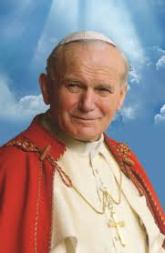Marion Adams from “Easy English Bible” provides us with some background on the meeting between Nicodemus and Jesus:
Nicodemus was a member of the Sanhedrin. The Sanhedrin was a group of Jewish leaders, plus the High Priest. The Romans ruled the Jews. But they allowed the Jewish leaders to make decisions about certain legal matters and also matters about their religion. These 70 Jewish leaders came from rich and important families. Nicodemus was also a Pharisee.
There are two possible reasons why Nicodemus came to see Jesus at night. Perhaps he did not want the other Jewish leaders to know that he had spoken to Jesus. Jesus was not popular with the Jewish leaders. He often argued with them in public. But perhaps there was another reason. Jewish teachers taught that the best time to encounter and study God, his Word and His Law was in the darkness.
****************
- God does not impatiently wait for you to crawl to him with your sins for His forgiveness.
- God comes down TO YOU, into your darkness.
- Why, because Christ came “to seek and find the lost.” (Luke 19:10)
Two words to consider: kerygma (the proclamation) and didechae (the teaching)
John 3:16 is about the Kerygma. For God so loved the world that he gave his one and only Son, that whoever believes in him shall not perish but have eternal life.
Biblical scholar B.W. Johnson explains:
(1) That God is love.
(2) That he loves the world instead of hating it.
(3) He so loved the world, that he gave his Son.
(4) The Son did not come to appease the Father’s wrath,
(5) .. but the Father sent him because he loved the world so well,
(6) that he came to keep men from perishing.
 John Paul II, in his 1979 apostolic exhortation Catechesi Tradendae (On Catechesis In Our Time) describes how the teaching builds upon the kerygma:
John Paul II, in his 1979 apostolic exhortation Catechesi Tradendae (On Catechesis In Our Time) describes how the teaching builds upon the kerygma:
The Gospel kerygma is the initial ardent proclamation by which a person is one day overwhelmed - and brought to the decision - to entrust himself to Jesus Christ by faith.
Through catechesis (this decision) is gradually deepened, developed in its implicit consequences, explained in language that includes an appeal to reason, and channeled towards Christian practice in the Church and the world (CT 25).
WHY IS THIS IMPORTANT TO THE PEOPLE OF ST. MONICA?
Because you are called to be the light of the world
John Paul continues:
The lay faithful too, precisely (because they are) members of the Church, have the vocation and mission of proclaiming the Gospel: they are prepared for this work by the sacraments of Christian initiation (Baptism, First Communion and Confirmation) and by the gifts of the Holy Spirit”. They have been “in their own way made sharers in the priestly, prophetic, and kingly functions of Christ.” Consequently, “the lay faithful, in virtue of their participation in the prophetic mission of Christ, are fully part of this work of the Church” and so should feel called and encouraged to proclaim the Good News of the Kingdom (JP II: Ecclesia in America, “The church in America”66).
There are heavenly phenomena in the practice of religion: the ordering of God’s household; the experiences of those who pass into the divine presence; the changes wrought in the attitude of God toward man by the sacrifice of Christ and the powers of Christ’s priestly intercession (From Christian Classics Ethereal Library).
Audio version of the homily is here:

